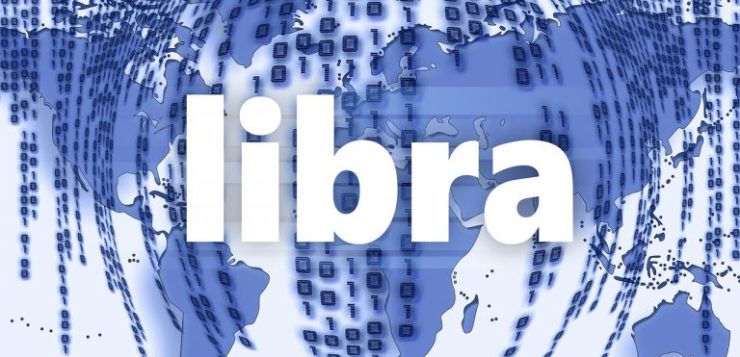There will be a new cryptocurrency available in 2020—Libra. Although it is backed by several Silicon Valley and mega-companies that make up the Libra Association, Facebook is clearly the leader driving the currency’s adoption. Here’s everything you need to know.
What is a cryptocurrency?
Although there are variations of virtual currency called cryptocurrency, the one most people have heard about before is Bitcoin. They are all based on the concept of blockchain. A blockchain is a distributed computer file that can be read by people across many computers. There is not one entity with control over the file. Blockchains contain encoded information that can’t be changed unless a user has a key that corresponds to the “block” in the chain they want to update. These changes get replicated across the chain. Blockchains are highly secure and publicly viewable. Cryptocurrency is a currency that uses a mathematical blockchain to track exchanges and value, rather than a central bank.
About Libra
Facebook announced Libra on June 18, 2019. A Swiss group called the Libra Association will govern Libra and currently includes 28 member companies, including Facebook, MasterCard, Visa, PayPal, Lyft, Uber, and Spotify, and plans to have 100 companies on board in 2020 when Libra is expected to launch.
According to the 26-page technical white paper released to describe how Libra will work, it will run on a blockchain. However, it’s important to note; Libra diverges from a traditional blockchain in a couple of ways.
1. A traditional blockchain is decentralized. Libra is not decentralized in the way that Bitcoin is since Libra’s nodes (independent computers that process and verify a blockchain) will only be run from the servers of Libra Association’s 28 current members. In response to critics who question the fact that Libra isn’t fully decentralized, Facebook said that Libra can’t be fully decentralized if it’s to create a “global financial infrastructure.” The goal is to have Libra be capable of handling 1,000 transactions per second; Bitcoin can only process seven transactions per second, but Visa’s payment network can support 24,000 a second.
2. Libra is also being designed as a “stablecoin.” The value of Libra units in circulation will be tied to assets made up of various currencies stored by the Libra Association. This is to minimize the traditional volatility of cryptocurrency. In a letter Facebook sent to Fabio De Masi, a German politician, Libra will be backed by the U.S. dollar (50 percent), euro (18 percent), Japanese yen (14 percent), British pound (11 percent) and Singapore dollar (7 percent). Interestingly, the currency of the world’s second-largest economy, the Chinese yuan, is absent. There are pros and cons to the yuan not being included, but some believe its omission could help assuage concerns of American regulators.
How world leaders are reacting to Libra
Since Facebook announced Libra, it’s faced criticism. Regulators and policymakers around the world are concerned about Libra’s impact on financial stability. The EU launched an investigation of the Libra Association on antitrust issues. In the United States, lawmakers are pressing Facebook for a moratorium on the project until all issues can be analyzed and understood. Due to this and other concerns, it’s being reported that some of the original supporters of Libra are backing out.
In France, Bruno Le Maire, the French Economy, and Finance Minister stated that they could not “authorize the development of Libra on European soil” due to the threat to monetary sovereignty.
Some world financial leaders have expressed concern that Libra threatens the financial stability of nations. Facebook refutes these claims while pointing to the “stablecoin” aspect of Libra and the reserve of currencies that backs it up.
A Libra spokesperson told The Independent: “We welcome this scrutiny and have deliberately designed a long launch runway to have these conversations, educate stakeholders, and incorporate their feedback in our design.”
There’s certainly a revolution underway in payment technology from China’s Alipay to Facebook’s Libra. Since finance is a critical part of the world’s infrastructure and a crisis in one market can ripple across the world, it behooves governments and regulators to critically assess new technology that’s untethered from traditional control systems. Not only does a new global financial system need to be safeguarded from breaches and transparent to officials, but it also must not succumb to whims that would only benefit a few. That’s why there are significant questions that need to be answered to fully understand the implications prior to the launch of Libra in 2020.
Author: Bernard Marr







